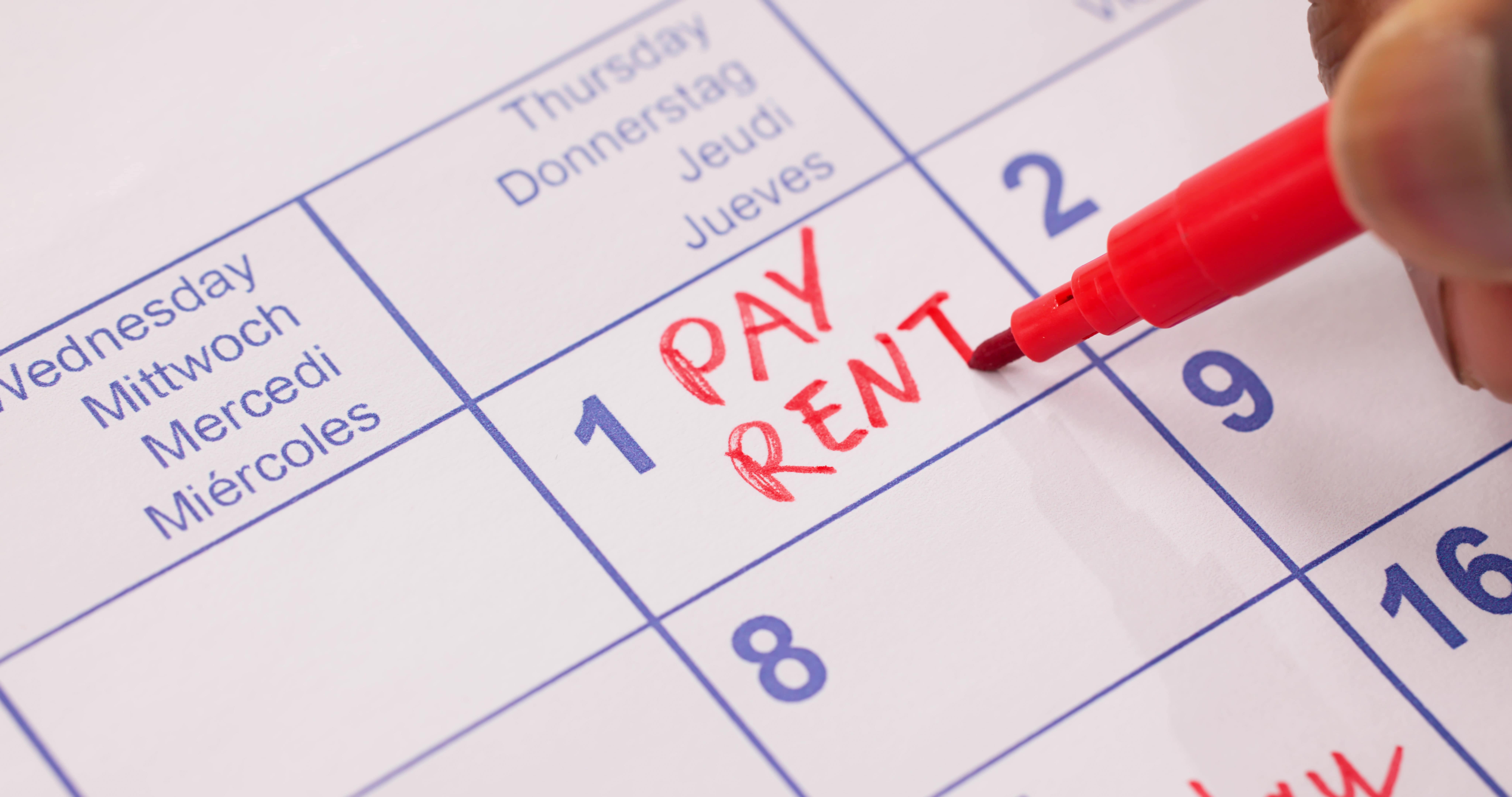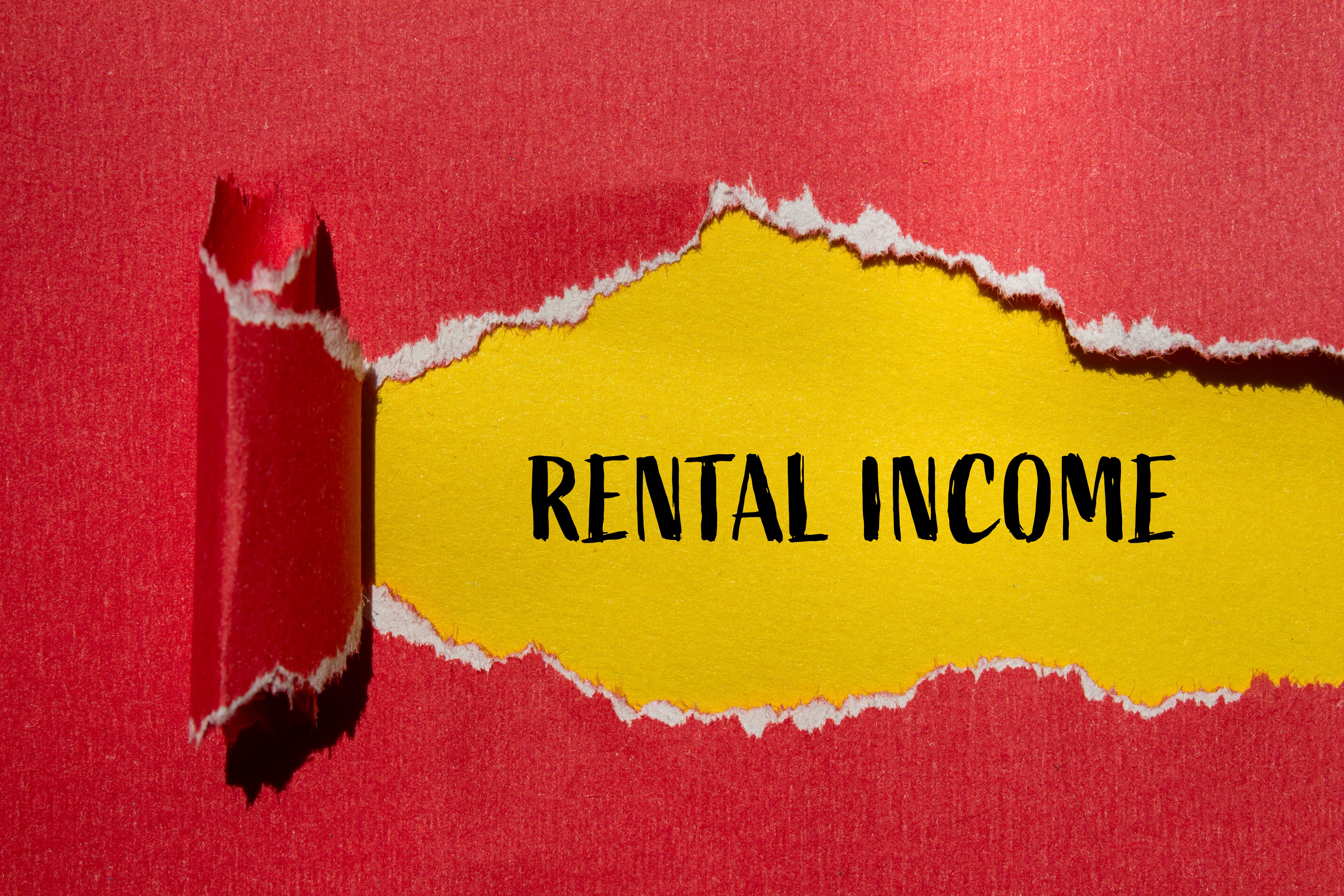State of The Central Florida Real Estate Rental Market in 2025

The Central Florida real estate rental market is a dynamic landscape, a land of equal opportunity. A bunch of factors, from tourism to economic trends, shapes it. The current home supply is just over thee months supply, the highest its been since 2020.
For property owners and real estate agents, understanding this local housing market is crucial. It can help maximize rental income and make informed investment decisions.
This article delves into the current state of the Central Florida rental market. It provides an overview of market trends and key drivers of demand. The real estate rental market is thriving.
We'll also explore legal considerations for property owners. From landlord-tenant laws to lease agreements, we'll cover the essentials and compare to other markets.
Lastly, we'll offer practical strategies for effective property management. This article provides useful information for both experienced investors and new property owners.
Let’s explore the dynamic world of the Central Florida rental real estate market.
Understanding the 2025 Central Florida Rental Market Landscape
The Central Florida rental market is a complex ecosystem. Diverse elements such as population growth and economic development influence it. Understanding these nuances is key to navigating this thriving market.
Population influx drives demand significantly. Central Florida attracts new residents because of its pleasant climate and employment prospects. More people often mean more demand for rental properties.
Economic activities, particularly tourism, play a vital role. Orlando, famous for its theme parks, significantly boosts rental demand. Tourists often opt for short-term rentals, while workers need more permanent housing.
Key cities, like Orlando and Kissimmee, exhibit unique characteristics. People recognize Orlando for its urban appeal, while visitors favor Kissimmee for its proximity to entertainment hubs. Such diversity enhances the rental market's attractiveness.
In summary, several factors shape Central Florida's rental landscape:
- Population growth and migration patterns
- Economic activities, particularly tourism
- The distinctive appeal of major cities like Orlando and Kissimmee
Understanding these components empowers property owners and real estate agents. It aids in making informed decisions and optimizing property management strategies.
Key Drivers of Demand in Central Florida Market in 2025

Several key factors propel demand in the Central Florida rental market. One significant driver is the region's robust job market. With numerous industries and business hubs, Central Florida attracts job seekers nationwide. These individuals are often in need of housing, fueling rental demand.
Major Companies Driving Orlando’s Economy
Orlando is home to some of the nation’s biggest companies across tourism, healthcare, defense, and dining. Walt Disney World Resort and Universal Orlando Resort lead the entertainment sector, attracting millions of visitors annually.
AdventHealth provides top-tier healthcare services, while Lockheed Martin drives innovation in aerospace and defense.
Darden Restaurants, the parent company of Olive Garden and LongHorn Steakhouse, dominates the dining industry. Westgate Resorts, a premier vacation ownership company, enhances Orlando’s thriving hospitality scene.
Education and Diversity
Education also plays a critical role. The area hosts many universities and colleges, increasing the number of students seeking off-campus housing. This influx of students creates a steady demand for affordable rental units near educational institutions.
One cannot easily explain the appeal of Central Florida’s lifestyle. Its warm climate, recreation opportunities, and scenic beauty draw retirees and remote workers. Many of these newcomers choose to rent before deciding on permanent homes, sustaining demand.
Another contributing factor is the region's cultural diversity. Central Florida’s international community attracts people from different backgrounds. This diversity fosters a welcoming environment for potential renters seeking a vibrant and multi-cultural place to live.
Lastly, the steady flow of tourists transforms into rental demand. Many visitors, enchanted by the area, return for longer stays or choose to rent vacation properties. This trend reinforces a persistent need for various rental options, ensuring a dynamic market.
Looking Back on 2024: The Impact of Tourism
Tourism plays a major role in Orlando and Kissimmee’s rental markets. With millions of visitors coming for theme parks and attractions, short-term rentals are always in demand.
In 2024, the average rent in Orlando was $1,596. The median home price was $385,000. This is a 3.9% increase from 2023, according to the Orlando Regional REALTOR Association.
Many property owners turn their homes into vacation rentals. This change affects the availability and pricing for long-term tenants. However, it also creates profitable opportunities.
Seasonal trends affect the market. During peak tourism, short-term rental prices go up. In off-seasons, owners try to attract long-term renters for steady income.
Large events and conventions further shape demand. During major gatherings, rental prices spike, giving property owners chances to maximize revenue by adjusting pricing and availability accordingly.
How The Sales Market Helps The Rental Market
The homes for sale market in Orlando plays a key role in shaping the rental market. As sale prices fluctuate, potential buyers who find themselves priced out often turn to renting. Those exclusively for consumers personal use only help market, increasing demand for rental properties.
Many investors purchase homes for sale in Orlando with the intent to rent them out, further expanding the market. These properties are for personal use only. They are not just for finding rental properties.
Rental Price Trends and Occupancy Rates in 2025

The rental price landscape in Central Florida reveals intriguing patterns. The region has witnessed a steady increase in rental prices over recent years. Economic factors and population growth contribute to this upward trend. As demand rises, rental prices adjust accordingly.
Occupancy rates often fluctuate in response to market conditions. Central Florida generally maintains robust occupancy levels due to consistent demand. However, economic shifts or seasonal changes can impact these rates. We expect a significant inventory increase, which will lead to home price and rents softening.
Different areas within Central Florida may display varying trends. For instance, urban centers like Orlando often see higher rents due to greater demand. Meanwhile, suburban or rural areas might offer more affordable options.
Key factors influencing rental prices and occupancy rates include:
- Economic growth and employment opportunities.
- Population increase and migration patterns.
- Development projects and infrastructure improvements.
- Seasonal tourism and event-related demand.
Property owners should monitor these trends for effective strategy planning. Understanding local market dynamics allows them to optimize rental income. Adjusting rental rates in line with market conditions can enhance rental profits while maintaining high occupancy.
Additionally, owners should consider offering competitive amenities. This approach helps attract and retain quality tenants, stabilizing occupancy in varying conditions. Remaining adaptable and informed is crucial in navigating Central Florida's evolving rental market.
Legal Considerations for Property Owners in the Orlando Real Estate Market

Owning property in Central Florida comes with legal responsibilities. Understanding these is vital for successful management.
Property owners must adhere to federal, state, and local laws. Ensuring compliance can mitigate risks and potential disputes.
Florida’s landlord-tenant laws outline specific rights and responsibilities. These laws govern areas such as rent, maintenance, and security deposits. I
t's crucial to familiarize yourself with these regulations to avoid legal challenges.
Key legal considerations for property owners include:
- Ensuring lease agreements are comprehensive and compliant.
- Adhering to fair housing laws and avoiding discrimination.
- Properly handling eviction processes in line with state laws.
Ensuring that lease agreements clearly outline tenant and landlord obligations is fundamental. Such clarity helps prevent issues and disputes. Additionally, compliance with fair housing laws is necessary to avoid discrimination claims.
Finally, understanding eviction laws is essential. Landlords must handle evictions legally to prevent complications. Following proper procedures protects property owners from potential lawsuits.
Being proactive about legal matters enhances property management and protects investments.
Navigating Landlord-Tenant Laws in Florida

Understanding landlord-tenant laws is key to smooth property management in Florida. The state has specific regulations protecting the rights of both parties. Being familiar with these laws can prevent common legal issues.
One significant aspect is the handling of security deposits. Florida law specifies when and how you should return deposits. Landlords must provide written notice about the deposit’s status within 30 days after tenant vacates.
Regular maintenance and safety compliance are another focus. Landlords are responsible for providing a habitable environment. This includes maintaining plumbing, heating, and safety standards. Neglecting maintenance can lead to disputes or legal action.
Effective communication with tenants is vital. Responding promptly to tenant concerns and maintaining records of all communications helps in resolving potential conflicts.
Consistent documentation is crucial to demonstrate compliance and protect against issue down the line. Following these guidelines fosters a respectful relationship with tenants, minimizing legal complications.
Effective Property Management Strategies

Successful property management in Central Florida hinges on strategic planning and execution. To maximize efficiency, property owners must adopt comprehensive management strategies.
Proactive maintenance is key to preventing costly repairs. Regular inspections identify issues early, protecting your investment and ensuring tenant satisfaction.
By addressing problems promptly, landlords can foster positive relationships with tenants.
Strategic marketing can significantly impact tenant turnover and vacancy rates. Emphasize unique property features, use high-quality images, and highlight location benefits. Consider online platforms and social media to reach a wider audience.
Tenant screening is crucial for maintaining a harmonious rental environment. A detailed screening process minimizes risks associated with late payments or property damage.
Verify employment, credit history, and conduct background checks to select reliable tenants.
Use technology to streamline management tasks and enhance communication. Property management software can automate rent collection and track maintenance requests. List of benefits includes:
- Efficient rent collection
- Streamlined communication
- Maintenance tracking
- Enhanced tenant experience
Effective property management requires staying informed about market trends. By always adapting strategies, property owners can ensure optimal occupancy rates and larger profit margins.
Adjusting to changing conditions positions landlords ahead in the competitive Central Florida rental market.
Managing Central Florida Real Estate: The Role of Property Management Companies

Hiring a property management company can be a game-changer for landlords in Central Florida. These professionals offer invaluable expertise that can streamline operations of your real estate rentals.
Property management companies handle day-to-day tasks such as rent collection and maintenance coordination.
This lets property owners focus on bigger investment plans instead of everyday tasks related to their Central Florida investments.
Moreover, these companies have extensive knowledge of local laws and regulations. They ensure compliance with landlord-tenant laws, reducing the risk of legal issues for property owners.
Additionally, property management companies often have access to a wider network of contractors and service providers. This access can result in cost savings through negotiated discounts on repairs and maintenance services.
Investing in a reputable property management company can ultimately enhance the value of your rental property. They help maintain high occupancy rates, ensuring that the investment remains profitable and hassle-free for landlords.
Maximizing Rental Income: Tips for Property Owners in the Orlando Housing Market

Boosting rental income requires strategic planning and execution. Successful property owners constantly evaluate their rental approach to increase profits.
First, you must set competitive rental rates. Using a property manager, you should be able to access data from the Multiple Listing Service (MLS/Stellar MLS). Assess local market conditions and compare similar properties. This ensures your rates attract renters while maximizing income.
Investing in property upgrades can also enhance rental value. Focus on high-demand features like modern kitchens, updated bathrooms, and energy-efficient appliances, which boost tenant appeal.
Key Strategies to Maximize Income:
- Set competitive rental rates based on market analysis.
- Invest in property upgrades that add value.
- Minimize vacancy by maintaining high occupancy rates.
- Offer amenities that attract premium rent.
- Implement cost-effective maintenance practices.
Minimize vacancy periods by focusing on tenant retention. Building strong tenant relationships can reduce turnover and keep your property consistently occupied.
Additionally, improve tenant attraction by offering amenities like in-unit laundry or secure parking. These features can justify higher rental rates and enhance income.
Finally, consider cost-effective maintenance practices. Regular upkeep ensures fewer expensive repairs and enhances the property's overall condition. This balanced approach helps sustain and potentially increase rental income.
COVID-19 and Its Effects on the Rental Market
The COVID-19 pandemic reshaped many aspects of the Central Florida rental market. Initial lockdowns caused an abrupt pause in activities, impacting rental demand and pricing.
Many tenants faced financial hardships, resulting in rental payment challenges. This led to landlords having to adapt quickly to accommodate these difficulties, often through flexible payment plans.
As remote work gained traction, rental preferences shifted. Tenants began seeking properties with home office spaces and better internet connection, changing the dynamics of rental offerings.
Additionally, health concerns made potential renters more conscious of property cleanliness and maintenance. This prompted property owners to enhance safety and hygiene measures, adding another layer to rental considerations.
The pandemic's influence persists as these changes continue to shape the rental landscape.
Investment Opportunities and Market Predictions

Central Florida presents numerous opportunities for real estate investments. Its dynamic rental market appeals to both seasoned investors and newcomers seeking steady returns.
The region offers a variety of investment options, from single-family homes to multi-unit complexes. These properties cater to diverse tenant needs, enhancing potential rental income.
Factors like Orlando's thriving tourism industry and diverse economy contribute to the area's investment appeal. They ensure a consistent flow of prospective tenants, supporting steady rental demand.
However, investors need to be aware of potential risks. Market fluctuations, interest rate changes, and regulatory shifts can impact investment outcomes. Thus, thorough market analysis and strategic planning are crucial.
Looking ahead, analysts predict growth in Central Florida's rental market. Economic resilience, a growing population, and a favorable business environment drive this. To maximize success, investors should consider the following:
- Location Importance: Proximity to transportation and amenities boosts rental appeal.
- Property Type Variety: Understanding tenant demographics helps in choosing the right property types.
- Market Trends Adaptation: Staying informed of trends can provide a competitive edge.
- Regulatory Compliance: Remaining compliant with local laws is crucial for long-term success.
- Leveraging Tech: Leveraging technology improves property management efficiency.
Conclusion: Staying Ahead in the Central Florida and Kissimmee Real Estate Markets

Navigating the Central Florida rental market requires the ability to adapt and foresight. Owners and investors should regularly assess market trends to maintain competitive advantages.
Understanding legal frameworks and tenant expectations is essential for property success. Complying with regulations while meeting tenant needs enhances satisfaction and maximizes income.
Proactive management and embracing innovative technologies can optimize operation efficiency. These strategies ensure properties remain attractive and generate consistent returns.
Staying updated and flexible is important for success in the Central Florida rental market.
Trust Allegiant with Your Central Florida Real Estate Investments

Stay ahead in the dynamic Central Florida real estate market! If you own property or invest in real estate, Allegiant Management Group can assist you. They can help you boost your rental income. They also make property management easier.
We management rental property or landlords and investors in Osceola, Orange, Lake, Polk, Volusia, and Seminole counties.
Contact us today to learn how we can support your real estate investment goals!
Frequently Asked Questions (FAQs): State of the Central Florida Real Estate Market
What factors influence the Central Florida rental market?
The Central Florida rental market is influenced by population growth, job opportunities, tourism, and housing supply. Seasonal demand, interest rates, and economic trends also impact rental prices. Additionally, short-term rentals, property taxes, and local regulations shape market conditions. High migration rates and affordability concerns drive rental demand.
How does tourism impact rental demand in Orlando and Kissimmee?
Tourism boosts rental demand in Orlando and Kissimmee by increasing short-term vacation rentals and driving higher occupancy rates. Seasonal visitor surges raise rental prices, while theme parks and conventions attract long-term renters. Tourism-related jobs also fuel demand for workforce housing near major attractions.
What are the current rental price trends in Central Florida?
Central Florida rental prices are rising due to high demand, population growth, and limited housing supply. Orlando and Kissimmee see steady increases, with median rents for apartments and single-family homes climbing. Economic factors, interest rates, and tourism trends continue to influence pricing dynamics.
What legal considerations should property owners be aware of?
Property owners must follow landlord-tenant laws, fair housing regulations, and local zoning ordinances. Lease agreements, eviction procedures, security deposit rules, and short-term rental restrictions vary by city. Compliance with property maintenance codes and insurance requirements is essential to avoid legal disputes.
How can landlords maximize rental income?
Landlords can maximize rental income by setting competitive rates, reducing vacancies, and upgrading amenities. Offering short-term rentals, improving property maintenance, and optimizing lease terms increase profitability. Strategic marketing, tenant screening, and energy-efficient upgrades also boost long-term returns.
Should I hire a property management company in Central Florida?
Hiring a property management company in Central Florida saves time, ensures legal compliance, and maximizes rental income. Professionals handle tenant screening, maintenance, rent collection, and local regulations. This is ideal for out-of-state owners or those managing multiple properties. Fees vary but often improve overall profitability.
How has COVID-19 affected the Central Florida rental market?
COVID-19 impacted the Central Florida rental market by increasing demand for single-family homes, shifting rental preferences, and driving rent fluctuations. Remote work influenced migration trends, while eviction moratoriums affected landlords. Tourism disruptions temporarily lowered short-term rental income, but demand rebounded as travel resumed.
What investment opportunities exist in Central Florida real estate?
Central Florida offers investment opportunities in short-term vacation rentals, long-term residential properties, and multifamily units. High tourism demand in Orlando and Kissimmee makes Airbnb rentals profitable. Growing job markets and population increases drive demand for rental housing. Emerging commercial developments also present strong investment potential.
Disclaimer: This blog is for information purposes only and does not constitute legal, financial, or professional advice. People consider the information reliable but not guaranteed. Consult a qualified expert before making real estate decisions.
Blog Updated: 03/27/2025



